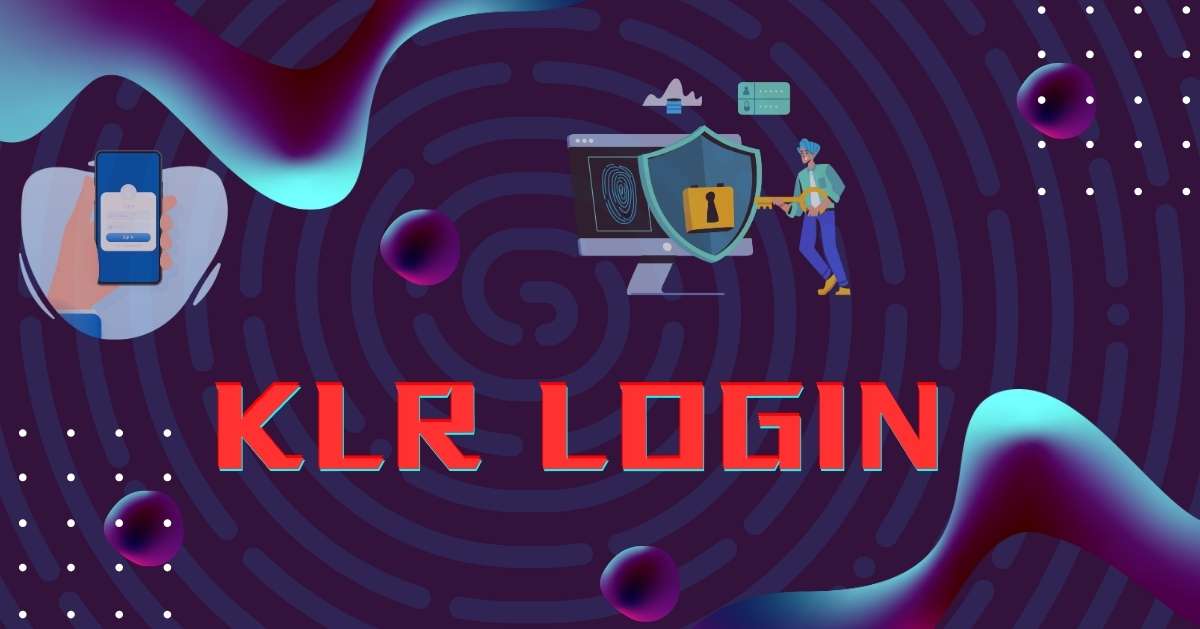In today’s fast-paced digital world, efficient and secure access to online platforms is paramount for businesses and individuals alike. The KLR login system has emerged as a robust solution for seamless authentication and access management. This blog post delves into the features, benefits, and best practices associated with the it, providing you with a comprehensive understanding of why it’s a game-changer for online security and user experience.
What is KLR Login?
KLR login is a cutting-edge authentication system designed to streamline the login process for users while maintaining high standards of security. It offers a user-friendly interface combined with advanced encryption protocols to ensure that personal and corporate data remains safe from unauthorized access.
The system supports multiple authentication methods, including:
- Username and Password: A traditional yet secure approach using encrypted credentials.
- Two-Factor Authentication (2FA): An added layer of security involving a secondary verification method, such as an SMS code or app-based notification.
- Biometric Authentication: Advanced options like fingerprint scanning and facial recognition for enhanced convenience and security.
Key Features of KLR Login
1. Multi-Layered Security
KLR login employs multiple layers of security to protect against potential threats. From data encryption to intrusion detection systems, the platform ensures that your login credentials and sensitive data are safeguarded at all times.
2. User-Friendly Interface
The system is designed with simplicity in mind, ensuring that users of all technical skill levels can easily navigate the login process. Clear instructions and intuitive design minimize errors and improve overall satisfaction.
3. Scalability
Whether you’re a small business or a large enterprise, KLR login adapts to your needs. It supports a vast number of users and integrates seamlessly with various platforms, making it a versatile choice for businesses of all sizes.
4. Real-Time Monitoring
With real-time monitoring and analytics, administrators can track login activities, identify unusual patterns, and mitigate potential threats before they escalate.
5. Compliance with Industry Standards
KLR login complies with global security standards such as GDPR, HIPAA, and PCI DSS, ensuring that your organization meets regulatory requirements without additional hassle.
Benefits of Using KLR Login
Enhanced Security
By combining traditional and modern authentication methods, KLR login drastically reduces the risk of unauthorized access and data breaches. The integration of biometric and 2FA ensures that even if passwords are compromised, unauthorized users cannot gain access.
Improved User Experience
Long gone are the days of cumbersome login processes. With KLR login’s streamlined interface and advanced features, users enjoy quick and hassle-free access to their accounts.
Cost Efficiency
Investing in a robust authentication system like KLR login can save organizations significant amounts of money in the long run by preventing cyberattacks and reducing the need for extensive IT support.
Increased Productivity
With faster and more reliable login mechanisms, employees spend less time troubleshooting access issues and more time focusing on their tasks. This boost in productivity directly impacts an organization’s bottom line.
How to Set Up KLR Login
Step 1: Evaluate Your Needs
Before implementing it assess your organization’s requirements. Consider factors like the number of users, the level of security needed, and the platforms requiring integration.
Step 2: Choose Authentication Methods
Select the authentication methods that align with your security needs. For instance, if your organization handles sensitive data, integrating biometric and two-factor authentication is advisable.
Step 3: Integration
Work with IT professionals to integrate KLR login into your existing systems. This includes configuring APIs, setting up user roles, and testing the system for potential issues.
Step 4: User Training
Train your users to understand how the KLR login system works. Provide resources such as guides, tutorials, and customer support to ensure a smooth transition.
Best Practices for Using KLR Login
1. Regularly Update Credentials
Encourage users to change their passwords regularly and avoid reusing old ones. This reduces the risk of unauthorized access in case of data leaks.
2. Enable Two-Factor Authentication
2FA adds an additional security layer, making it harder for attackers to gain access even if credentials are compromised.
3. Monitor Login Activities
Utilize its real-time monitoring features to keep track of unusual login attempts. Early detection can prevent potential threats from escalating.
4. Conduct Security Audits
Periodically review and audit your login system to ensure it’s up to date with the latest security standards and practices.
5. Educate Users
Provide regular training sessions to educate users about phishing scams and other common cyber threats. A well-informed user base is your first line of defense.
Common Challenges and How to Overcome Them
Challenge 1: User Resistance
Many users resist changes to their login systems due to unfamiliarity or perceived complexity. Overcome this by offering clear communication and user-friendly training resources.
Challenge 2: Integration Issues
Integrating a new login system with existing platforms can be challenging. Collaborate closely with IT teams and leverage KLR’s support services to address compatibility issues.
Challenge 3: Maintenance
Regular maintenance is required to keep the system running smoothly. Assign dedicated personnel or third-party providers to handle updates and troubleshoot issues.
Conclusion
KLR login stands out as a reliable and efficient authentication system that enhances security, improves user experience, and supports organizational growth. By adopting them, businesses and individuals can enjoy peace of mind knowing their data and systems are well-protected. Whether you’re looking to enhance security, streamline access, or boost productivity, it is an investment worth considering.
FAQ’s
KLR Login combines advanced encryption, multi-factor authentication, and biometric options to ensure robust protection against unauthorized access and cyber threats.
Yes, KLR Login is highly scalable and supports seamless integration with various platforms, making it suitable for businesses of all sizes.
2FA can be enabled via the KLR Login dashboard.

